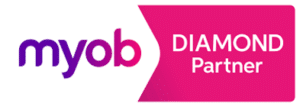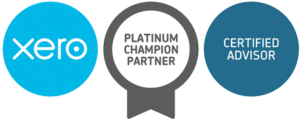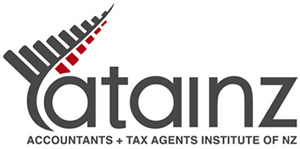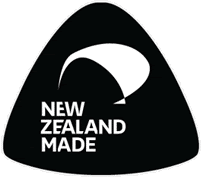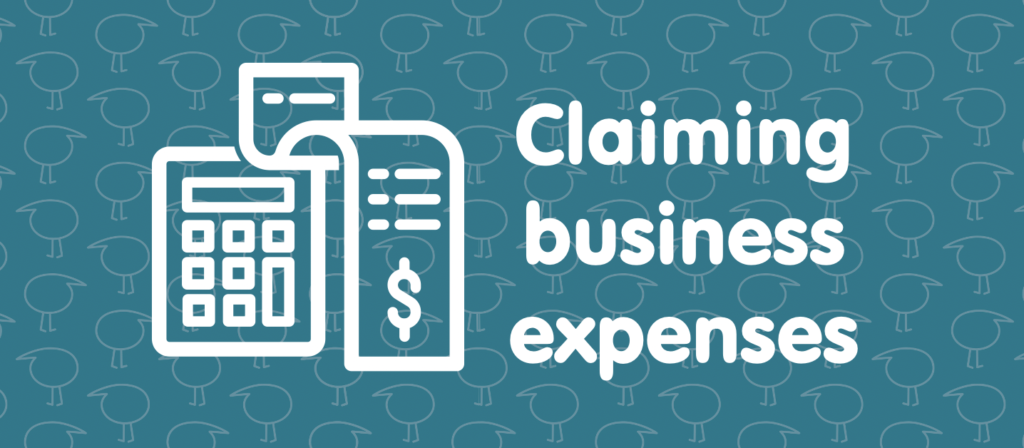
One major source of confusion for new and experienced business owners revolves around claiming expenses for your business and in particular, what you can and what you can’t claim as a valid expense.
This article dives into what claiming expenses actually means, what you can and can’t claim, myth busting some common “scenarios” that we hear about and why it’s a bad idea to try and claim expenses that aren’t business related.
As usual, if there’s anything you aren’t sure about in this article, please feel free to get in touch with us for answers specific to your situation.
In this article...
First of all, what does “Claiming expenses” actually mean?
As a sole trader, contractor or a company, the IRD allows you to “claim” certain expenses against your business’s income. Those expenses reduce the portion of your total income that you pay tax on, so you pay less tax. You are in effect claiming the tax back from those expenses.
It’s really important that you keep good records to support your expense claims as without them IRD may not accept them. IRD recommends to either keep a paper receipt or a scan of the original receipt stored with your transaction records or both.
Typical expenses that you can claim for are either towards the day-to-day running of the business; for example, advertising, rent or wages, or for purchasing assets such as machinery, tools or computers, which, if they cost over $5000 (For purchases in FY20) need to be depreciated over time (Note: this figure is reducing to $1000 for assets purchased in FY21)
Assets lose value over time; this loss of value is known as depreciation. You can claim depreciation as a business expense. IRD has a comprehensive list of depreciation rates and methods for business assets here.
While some expenses can be fully claimed for, such as when they are 100% used for the business, i.e. business premises rent (not home office rent), some other expenses can only be partially claimed for if they are also partly for private use, such as a vehicle or entertainment.
So, the more business expenses you can claim, the less tax you have to pay at tax time.
So, what can you claim for?
This is the million-dollar question since legitimate business expenses are generally particular to a business and sector. Your accountant will be the best person to advise what you can and can’t claim for in your business but here is a list of typical business claimable expenses;
- Vehicle expenses, transport costs and travel for business purposes
- Rent paid on business premises
- Depreciation on items like computers and office furniture
- Interest on borrowing money for the business
- Some insurance premiums
- Work-related journals and magazines
- Membership of professional associations
- Home office expenses
- Work-related mobile phones and phone bills
- Stationery
- Work uniforms
- Tax agent’s fees
- Legal expenses
- Entertainment expenses
Note: This is not an exhaustive list of claimable expenses and not all of these apply to every business, your accountant is the best person to advise you on what can and can’t be claimed for in your business. If you don’t have an accountant, Kiwitax is an excellent choice, it takes just two minutes to get a quote right here.
Demystifying common myths around claiming expenses
We hear loads of stories about what people think they should be able to claim, what their friends think they can claim, or what they believe a previous accountant had said they can claim and where that information has turned out be incorrect or a myth.
A good accountant will help you to fully realize the claims you can make to minimize the tax you have to pay all while avoiding the risk of going too far.
Here are some of the more common myths we encounter.
1. Clothing
A really common myth we hear is that you can claim all business clothing as a business expense. This is false.
You can claim for branded clothing, mandated uniforms, health & safety equipment such as high-vis jackets and personal protective equipment (PPE) such as steel-capped boots and masks that are required to undertake your work.
However, you can’t claim for business suits, anything that is considered to be for mixed use (i.e. can be worn for non-business purposes) or things like glasses (sun or prescription).
2. Vehicles
Another common myth is that all business vehicles and running costs can be claimed as business expenses.
That is only true if the vehicle is owned by the business and only used for business purposes.
If the vehicle is owned by the business and has some personal use then the business may need to pay Fringe Benefit Tax (FBT) or some private use adjustments may need to be made to any expenses claimed.
There are a couple of methods to calculating personal use adjustments, checkout our indepth article here.
Kiwitax has vehicle mileage logbooks available FREE for customers, just ask if you need one.
3. Entertainment
Another really common myth revolves around claiming entertainment expenses and these can get a little tricky.
General Guidelines
- If an expense is purely personal (e.g., taking your family out for dinner), it’s not deductible.
- If the entertainment is related to business, it may be either 50% deductible or 100% deductible, depending on the nature of the expense.
- Personal elements within business-related entertainment (e.g., enjoying a company Christmas party) often reduce deductibility to 50%.
50% Deductible Entertainment Expenses
These expenses generally involve personal enjoyment or social aspects:
- Corporate box or premium seating at events
- Renting a boat for entertaining clients or employees
- Gifts of food or drink to clients or staff*
- Food and drinks for social events at your office (e.g., parties or functions)
- Off-site meals, such as taking a client or employee to lunch
- Annual company trips and accommodation with personal elements
Example: Hosting a Christmas party for employees and clients would be 50% deductible due to the personal enjoyment involved.
100% Deductible Entertainment Expenses
These expenses typically have a direct business purpose without personal enjoyment:
- Meals provided at a conference for attendees
- Meals employees purchase while travelling for business or at conferences
- Non-food/drink-related gifts for clients or staff*
- Morning and afternoon tea provided in the workplace
- Promotional freebies (e.g., branded merchandise), excluding food and drink or items given to employees
Example: Providing coffee and snacks during a workshop at your office is 100% deductible.
Pro Tip: You can claim 100% of your cafe-made coffee by getting it to-go and consuming it at your business premises.
*Staff gifting can have implications and be tricky. Read our article about gifting to staff for more information, and consult your accountant to get advice on this.
Record-Keeping Requirements
To claim entertainment expenses, you must maintain accurate records, including:
- Date of the expense
- Names of attendees
- Their businesses or roles
- Purpose of the entertainment
These records will help you identify which expenses are fully deductible and which are only 50% deductible.
Best practice with entertainment expenses and especially meetings is to ensure that the meeting is recorded in your business calendar, you record who you are meeting with and what the meeting is about.
GST on Entertainment Expenses
If the entertainment qualifies as a deductible expense, then you can claim the GST in your GST return. You can usually deduct the full amount of all your business-related entertainment expenses in your GST return. However, an annual adjustment will need to be made for any entertainment expenses that are 50% deductible.
Again, what we’ve outlined above is not an absolute list about what is and what isn’t an entertainment expense, if you are unsure, you should consult with your accountant or checkout IRD’s guide here.
4. Conferences & Holidays
Conferences are a great way to upskill and network with other people in your industry and if held out of town, they can also be a great way to get out and away from the office.
That’s why many business owners will tack on a day or two for R&R purposes, the myth here is that you can claim these personal R&R days as part of the business expenses for the trip.
The advice here is to keep an itinerary similar to what you would do with entertainment expenses and detail what parts are for personal activities.
Why can’t I claim for (insert non-business-related expense here)?
An accountant should help you to fully claim legitimate expenses for your business, this is what accountants call “tax minimisation” which is good, and very different from “tax evasion” which is illegal.
An accountant that advises or assists you to bend the rules here is acting unethically and along with you, faces severe penalties.
Navigating the tax minefield, is a job best left to experts like Kiwitax. It requires constant updating of knowledge about current laws and the cost of getting it wrong can be significant.
IRD routinely audits NZ businesses to ensure compliance with tax laws, audits can range from GST registration checks to a full examination of business and personal records.
Not only are audits time consuming and stressful but the penalties can be very costly if you have been negligent in managing your tax or record keeping, regardless of whether they are accidental or intentional.
In a nutshell, it’s just not worth it.
The trick with all of these expenses is to maximise what you are legally able to claim to ensure the best tax position for your business.
About Kiwitax – Award winning business improvement, tax and accounting service
Here’s the thing. As a business, rental property owner or start-up, you get a kick out of having your own gig. But chances are dealing with your tax and accounting leaves you cold. Good news! We love it, so hand it over to Kiwitax and we’ll look after it all for you.
Whether you deal with us online, by phone or drop into our Napier office, you’ll find a friendly, professional hardworking team ready to work with you, however you keep track of your financial information and from wherever you do business. And all for a fixed price.
Plus if you’re at a loss to know how to improve aspects of your business – from growth planning to cashflow management, even tax debt and so much more – we’re all over that too. Our Business Improvement advisors can help you make a plan and put it into action.
Kiwitax are a preferred training provider for Business Improvement services through the Regional Business Partner Network Capability Voucher Scheme. This is a government funded scheme designed to boost business capability by providing funding of up to 50% of approved training programs with specified training providers up to a maximum value of $5000.
If you liked this article and want to make improvements in your business, with quarterly coaching sessions specifically tailored to support you to identify and achieve your business goals, lets chat!

